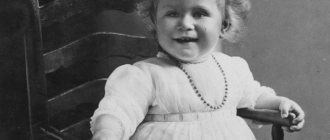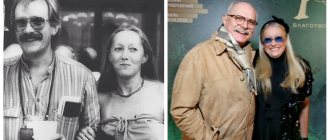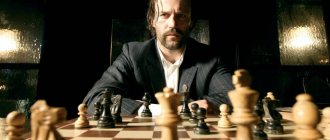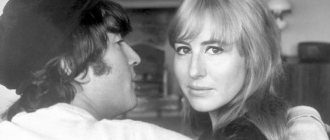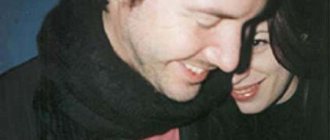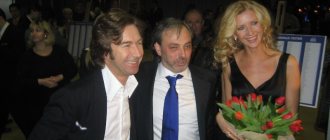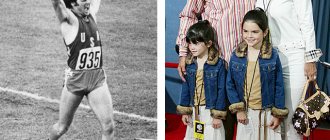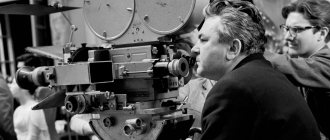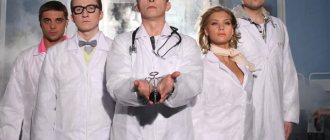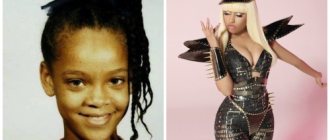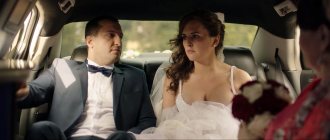May 29 marked the 100th anniversary of the birth of one of the most famous American presidents, John Fitzgerald Kennedy. He led the country for just over two years, but managed to be remembered for both brilliant victories and deafening failures. Kennedy became not only a model of a political leader, but also a style icon. After the assassination of the president, his relatives continue to influence American politics. Lenta.ru traced the history of the legendary dynasty and its most stellar representative.
There is not and never has been a royal family in the United States, but the Kennedy family is perhaps most suitable for this role. From 1947 to the present day (a quarter of the country’s entire history!) every year, with the exception of a short break from 2011 to 2013, at least one member of this clan has held a federal elected office. The legendary dynasty dates back to the 19th century, and owes its appearance in America to a microscopic parasite - Phytophthora infestans.
It was the invisible Phytophthora infestans that in 1845 struck potato tubers throughout Ireland - the root crops began to rot right in the ground, depriving the peasants enslaved by the British of their only source of income. At first, the government tried to provide assistance to the victims, but the money ran out almost immediately.
Deprived of income from potatoes, English and Scottish landowners jacked up rental prices for their Irish land. The situation was aggravated by the cold winter: hungry and freezing peasants were literally decimated by epidemics of scurvy, typhus and dysentery. Tens of thousands of Irish fled the country. Among those who left was Patrick Kennedy.
He reached Boston, America, where he got a job as a cooper (barrel maker) - the work allowed him to maintain a tolerable standard of living.
Patrick's son already owned three saloons, but it was his grandson, Joseph, who achieved truly impressive success: he actively invested in stocks, real estate, cinema and became fabulously rich. Rumor has it that he even supplied bootleggers with alcohol during the Prohibition years.
Joseph married the daughter of the mayor of Boston and met President Franklin Roosevelt. This allowed him to enter big politics: Kennedy became the first chairman of the Securities and Exchange Commission and the US Ambassador to Great Britain.
Everything seemed to be going well, but Joseph was let down by his position during World War II. He opposed US intervention in the conflict and insisted on improving relations with Nazi Germany. In addition, the ambassador extremely outraged British Prime Minister Winston Churchill, tirelessly predicting defeat for the kingdom.
Joseph Kennedy, US Ambassador to Great Britain, 1940
Photo: JA Hampton / Topical Press Agency / Getty Images
His diplomatic career was interrupted, his political reputation was undermined, but Joseph did not give up: his children - four boys and five girls - became his instruments of influence. From childhood they were taught to stick to each other and remember that family comes first.
Joseph encouraged a competitive spirit among the boys and hoped that his eldest son, Joe, would pursue a political career. But Joe, who served as a naval pilot, died in the war - they say that he took on increasingly difficult tasks precisely because of a childish desire to prove his superiority over his sailor brother John. After the tragedy, Joseph decided that it was John who should become an influential politician.
After the war, using connections and money, the patriarch of the Kennedy family achieved wide coverage of John's military exploits: the story of how the sailors of a torpedo boat sunk by the Japanese escaped under his command was published by the New Yorker magazine and sold a hundred thousand copies. Kennedy Jr. constantly appeared on TV, showed voters his family, and became a kind of star. “The Kennedy family forever blurred the line between politician and celebrity,” said writer Vincent Bzdek.
Joseph’s calculation paid off: John Kennedy was elected to the House of Representatives, then to the Senate, in 1960 he defeated Richard Nixon, who, compared with the young and radiant Democrat, seemed like an artifact of a bygone era, and finally occupied the Oval Office in the White House.
“The Greatest President”, “The Greatest Man Since Jesus Christ”, “God, How We Miss Him!” - such inscriptions are most often found in the memorial book of the “Sixth Floor Museum” in the same building in Dallas, Texas, from which Lee Harvey Oswald shot at President Kennedy.
Kennedy was indeed a first in many ways: the first president born in the 20th century, the first young World War II veteran in the White House, the first Catholic president, the youngest head of state in history. He came to power with a promise to break the stagnation of the previous eight years under the military-glory but passive Republican general Dwight Eisenhower.
Biography
John Fitzgerald Kennedy - 35th President of the United States. Despite the fact that he made several important decisions in this position, in the minds of most people, especially outside the United States, his name is primarily associated with the mysterious murder. And although the perpetrator who fired the shots at John Kennedy was officially found, numerous hypotheses are still being discussed.
From the biography of John Kennedy, it becomes clear that he especially had no choice but to become a politician. He was born in Brookline, in the family of businessman and politician Joseph Patrick Kennedy and his wife Rose Fitzgerald, who was involved in charity. John received his name in honor of his grandfather, John Francis Fitzgerald, who was the mayor of Boston and was considered one of the most eloquent politicians in the country. By the way, on the paternal side, the future president had mostly political figures.
Childhood photo of John F. Kennedy | LiveInternet
John was the second child in the Kennedy family, but not the last - Rose and Joseph had nine children. The boy was sick a lot and grew up quite frail; he could even die from scarlet fever in early childhood. And during his school years, Kennedy spent most of his time in a hospital bed. But at the same time, the teenager was athletic: he loved to play baseball and basketball, and was fond of athletics. In high school, the young man had a reputation as a disorganized and frivolous student who behaved defiantly and “rebelliously.”
John in his student years | The History Place
Among higher educational institutions, John Kennedy's biography includes Harvard University, the London School of Economics and Political Science and Princeton University, but due to constant illnesses, he did not graduate from any of them the first time. At one time, the young man was even diagnosed with leukemia, which he did not believe and turned out to be right. Later, John again becomes a student at Harvard and this time takes his studies very seriously. He became interested in political science and history, excelled in student societies, and continued to be active in sports. After receiving his diploma, John Kennedy decided to continue his education and went to study law at Yale University, but the Second World War began and the guy brought up on patriotism and self-sacrifice went into the army.
Kennedy was a naval officer during the war | John Fitzgerald Kennedy Library
Due to poor health, he might not have been accepted into the armed forces, but John, almost the only time in his life, used the authority of his family to get his way. Moreover, future President John Kennedy did not intend to sit out in government, but sought to participate in military operations. As a result, he ends up in the Pacific Fleet as an officer of a fast torpedo boat, where he fought against the Japanese army. There are confirmed historical facts that John Fitzgerald Kennedy showed heroism in battles, the exploits of his team were written about in newspapers, and John himself was awarded many military awards. He was demobilized ahead of schedule due to his worsening health condition: the young man contracted malaria, received a complex back injury, and was wounded in battle.
Content
- 1 Biography 1.1 Education
- 1.2 Military service
- 1.3 Political career
- 1.4 USSR and Russia
- 1.5 Health status
- 1.6 Death
- 4.1 State awards
President John Kennedy
Soon after leaving the armed forces, Kennedy took up journalism, but then agreed to his father’s persuasion and plunged into the political life of the country. He entered the US House of Representatives instead of Congressman Michael Curley and began a political career. In 1953, John was already a senator. In this post, he was remembered primarily for his refusal to censure Senator Joseph McCarthy, accused of anti-American behavior, since he worked with his brother. Kennedy would later say that he “fulfilled the usual quota of mistakes for a politician.”
At the age of 43, John Fitzgerald Kennedy, as a candidate from the Democratic Party, wins the presidential election and becomes the first Catholic to lead the United States. By the way, it was during that election campaign that the first ever televised debates between candidates for the post took place. And many oppositionists argued that Kennedy won because he looked very impressive on the screen. The president donated his entire government salary to charity, and the basis of his rule was the slogan: “Think not about what the country can give you, but about what you can give it.”
John Fitzgerald Kennedy | Biographie
President Kennedy's domestic policy cannot be called unambiguously successful. The economy's initial surge then gave way to stagnation, with the sharpest decline in stock market shares since the terrible crash of 1929. John managed to reduce the unemployment rate and lower the prices of oil and steel, but because of this, his relations with industrialists worsened. At the same time, it was thanks to the president that serious steps were taken to normalize the racial issue and equalize the rights of black people. And the race with the USSR for space exploration led to the start of the large-scale Apollo program. It is interesting that the US President proposed to Secretary General Nikita Khrushchev to join forces on this issue, but was refused.
Photo of President Kennedy | RF-media
Foreign policy can be characterized by a significant improvement in relations with the Soviet Union, but at the same time several other hot spots have worsened. There were many intense conflicts under Kennedy, the most famous of which were the Cuban Missile Crisis, the Berlin Crisis, and the failed Bay of Pigs landings. At the same time, John Kennedy founded the Alliance for Progress, which greatly helped Latin American countries economically, initiated the signing of a trilateral treaty between the USSR, the USA and Great Britain banning nuclear weapons tests, and was going to withdraw troops from Vietnam. Kennedy's successor, Lyndon Johnson, on the contrary, launched large-scale military operations there.
Links
Arenas Mutual Street Arena (1917-31) • Maple Leaf Gardens (1931-1999) • Air Canada Center (since 1999)
Staff Maple Leaf Sports & Entertainment (Owner) • Larry Tanenbaum (Chairman) • Brendan Shanahan (President) • Lou Lamoriello (General Manager) • Mike Babcock (Head Coach) • Current Roster Farm clubs AHL : Toronto Marlies •
ECHL
: Orlando Solar BearsCulture Story : Original Six • Carlton Bear • Toronto Blueshirts • Toronto Arenas • Toronto St. Patrick's • Kid Line • 2014 NHL Winter Classic • NHL Centennial Classic
Pinned numbers
: • • • • • •
9
• • • • • • • • • • ;
Removed from circulation
• ;
Withdrawn from all NHL clubs Derby
: Ottawa Senators • Montreal CanadiensFinals Victories: 1918, 1922, 1932, 1942, 1945, 1947, 1948, 1949, 1951, 1962, 1963, 1964, 1967
Defeats:
1921, 1933, 1935, 1936, 1938, 1939, 1940, 1959, 1960
Personal life
John Kennedy's personal life changed 10 years before his death. At 36, he married journalist and socialite Jacqueline Leigh Bouvier, whom he dated for just under a year. Subsequently, Kennedy's wife would become one of the most popular women in America and a true trendsetter. They had four children, although the eldest daughter Arabella and the youngest son Patrick died in infancy. Daughter Caroline Kennedy became a writer and lawyer, as did John Fitzgerald Kennedy Jr., who received the nickname “America's Son” as he was raised in the White House in front of the entire country. In 1999, Kennedy Jr. died in a plane crash.
Wedding of the Kennedys | A wedding dance
It is difficult to judge how happy the marriage of John Kennedy and Jacqueline was, since literally on the eve of the marriage the man had a serious affair with the Swedish girl Gunilla von Post, and earlier the president was in a romantic relationship with the artist Maria Pinchot Meyer, actresses Gene Tierney and Angie Dickinson, and also one Judith Campbell. But even after the wedding, Kennedy had at least two star mistresses - the Hollywood diva Marilyn Monroe, as well as the German legendary film actress Marlene Dietrich, who was not only much older, but had previously been one of his father’s lovers.
John Kennedy and Marilyn Monroe | Fanpop
Already in the 21st century, after the declassification of documents, the public learned that the 35th president suffered from severe pain all his life. No treatment helped him, and John was forced to take Novocaine injections before press conferences. Kennedy is the author of a number of books, the most famous of which is the collection of biographies of politicians, Profiles in Courage, for which the author received a Pulitzer Prize. The Personal Diary of the 35th President of the United States, where John recorded his sayings and thoughts, also became a bestseller and was published after his death.
Notes
- [www.gorby.ru/rubrs.asp?art_id=13598&rubr_id=171&page=1 M.S. Gorbachev met with Senator E. Kennedy](inaccessible link - history
). True, Gorbachev Foundation (02/07/1986). Retrieved August 27, 2009. [web.archive.org/20041107021529/www.gorby.ru/rubrs.asp?art_id=13598&rubr_id=171&page=1 Archived from the original on November 7, 2004]. - ↑ 12
Galstyan A. S. The Armenian lobby in the USA: formation and main areas of activity (1915-2014). Dissertation for the degree of candidate of historical sciences. - Tomsk, 2020. - P. 239. Access mode: www.tsu.ru/science/disadvice/announcement_of_the_dissertations_in_the_tsu.php - [lenta.ru/news/2009/07/31/kennedy/ Senator Kennedy will receive the highest civilian award in the United States]. Lenta.ru (July 31, 2009). Retrieved August 13, 2010. [www.webcitation.org/61Bo67Jtv Archived from the original on August 25, 2011].
Assassination of John Kennedy
On November 22, 1963, President John Kennedy and his wife scheduled a visit to the Texas city of Dallas. As their car drove down one of the streets, shots were heard and several bullets hit Kennedy, who was immediately taken to the hospital. But the intervention of doctors was in vain, and John Fitzgerald Kennedy died half an hour after the assassination attempt. The state governor and one of the eyewitnesses of the events were also injured in the shootout.
Former Marine Lee Harvey Oswald was arrested on suspicion of killing Kennedy. It is interesting that he was detained for the murder of a policeman 40 minutes after the death of the president, but during the investigation he turned out to be the main official suspect. Since Oswald was shot two days later by local resident Jack Ruby, who broke into the station, there is no specific testimony from this man. By the way, Ruby also lost his life, so the assassination of John Kennedy still remains one of the biggest mysteries in US history.
According to opinion polls, more than 60% of the population are confident that either Lee Harvey Oswald did not act alone or had nothing to do with the death of the president. There are many hypotheses: from the involvement of organized crime and large financial figures to the involvement of the CIA and counterintelligence in the case. Many books have been written about the assassination of John Kennedy, and many feature films and documentaries have been shot.
Lee Harvey Oswald is the official perpetrator of the Kennedy assassination | Global Truth
The most significant are Oliver Stone's painting “John F. Kennedy. Shots fired in Dallas,” Norman Lewis's novel The Sicilian Specialist; and a 26-second video shot on a home camera by eyewitness Abraham Zapruder, which became known as the “Zapruder film.” Stephen King's science fiction novel 11/22/63 is dedicated to an attempt to prevent a murder. In 2020, a mini-series based on this book was released, starring James Franco.
Literature
- Adler B. The Kennedy children: Triumphs and tragedies. - NY: Watts, 1980. - 304 p.
- Aschburner S. Ted Kennedy: The politician and the man. - Milwaukee: Raintree, 1980. - 48 p.
- Braldee BC Conversations with Kennedy. - NY: Norton, 1975. - 253 p.
- Burner D., West TR The torch is passed. The Kennedy brothers and American liberalism. - NY, 1984. - 254 p.
- Burnes JM Edward Kennedy and the Camelot Legacy. — 1976.
- Chellis M. Living with the Kennedys: The Joan Kennedy story. - NY: Simon & Schuster, 1985. - 240 p.
- David L. Ted Kennedy: Triumphs and tragedies. - NY: Grosset & Dunlap, 1972. - 274 p.
- Hersh B. The education of Edward Kennedy. A family biography. 2nd ed. - NY: A Bell Book, 1980. - 688 p.
- Honan WH Ted Kennedy. Profile of a Survivor. Edward M. Kennedy after Bobby, after Chappaquiddick and after three years of Nixon. - NY: Quadrangle books; NY Times Comp., 1972.
- Lerner M. Ted and the Kennedy Legend. A Study in character and Destiny. — NY: St. Martin's Press; A Lawrence Field Book, 1980.
- Lewin MB Kennedy Campaigning. - Boston: Beacon Press, 1966.
- Lippman T. Senator Ted Kennedy. - NY, 1976. - 296 p.
- Manchester W. The death of a president. Nov. 20 — Nov. 25 1963. - NY: Harper & Row, 1967. - 710 p.
- Olsen J. The Bridge at Chappaquiddick. - NY, 1970.
- Sherrill R. The Last Kennedy. - NY: The Dial Press, 1976.

